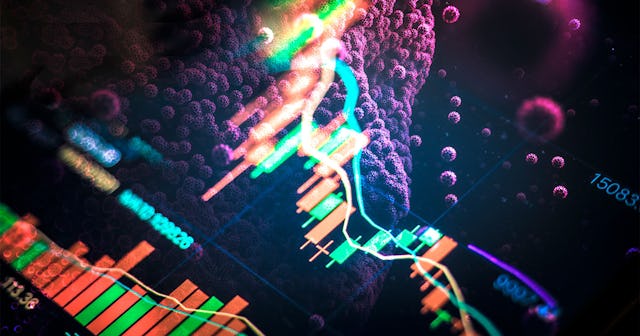The 'Biden Boom' Is Coming Soon-ish––Here's What That Means

I was chatting with my wife the other day about the last time we went to see a movie as a family. Down the street from our house in our small Oregon town is this little one-screen theater. Pre-pandemic, we would go there once or twice a month with our three children. But we haven’t gone to a movie since March.
We also haven’t gone out to eat as a family, either. We never went to the community pool this summer, and we went several months without haircuts. I canceled my gym membership, and my wife hasn’t had a spa day in who knows how long. We even spent a couple years saving up for a big family vacation to Disney World that we scheduled for October, but ended up canceling that as well and saving the money. Chances are, if you are reading this, you have been living the same COVID-19 lifestyle as us: staying indoors, and avoiding, well … just about anything that involved people.
Now don’t get me wrong, all of this is trivial in comparison to what many Americans have been faced with. Millions of people have lost their jobs, and now over a quarter of a million people in our country alone have lost their lives. Not everyone has fared well in this pandemic.
On the other side of the table, however, there is a huge pocket of the American population that have been working from home, hunkering down to flatten the curve, and saving all the discretionary money they used to spend on going to bars and concerts. They’ve been saving money on their commute, which has caused them to not get snacks at the gas station, or stop for a coffee along the way. And all of all of that saved money is sitting in a lot of bank accounts.
And it’s not a small amount of money. In fact, it’s actually a very large amount of money that could be a game changer for the American economy. According to NPR, economists are estimating that pocket of money to be around $2 trillion. That is roughly 10% of the American economy. Ian Shepherdson, the chief economist at Pantheon Macroeconomics, even has a name for it: He’s calling it the “Biden Boom.” Which I will admit, has a nice ring to it. “President-elect Biden is arriving in Washington at the right time,” said Shepherdson. “The COVID news at the point where he’s inaugurated is likely to be horrific. But it won’t be for much longer after that.”
Jae Young Ju/Getty
The real question here is: how much longer? Well… unlocking that money is going to depend on the successful release of a vaccine. And to be honest, we are closer than ever before, but considering the U.S. just passed the grim milestone of 250K deaths from COVID-19, even a few months feels like a long deadly slog.
According to USA today, both Pfizer and Moderna have vaccines that are showing a lot of promise. However, they also face a lot of logistical challenges around getting their vaccines approved by the FDA, getting them manufactured, and finally distributed. There is also the issue that there are many Americans who will be reluctant to take the vaccine. So long story short, this will not be a flick of a switch, and suddenly we are all vaccinated and spending money freely. Still, when it happens, it’s likely to be a boon for the economy.
Exactly what people will spend their squirreled away savings on is still unclear. Joel Prakken, chief U.S. economist for the forecasting firm IHS Markit, had this to say to NPR on how people will spend: “I went quite a long time without getting my hair cut. I’m not going to get three extra haircuts to make up for the ones that I missed during the summer.” So chances are, that discretionary money will not go back to its originally intended vendor. Prakken thinks it will be two more years before Americans spend on travel, entertainment and other services at pre-pandemic levels. And even when a vaccine is widely available, it may take time before people feel safe going out and spending money again.
I have a feeling this will sound familiar to some of you, but I have personally made it through two rounds of layoffs at my full time job (this writing gig is my side hustle). All that discussion of losing my main source of income has made me pretty hesitant, and it could be a long time before I feel comfortable spending money like I used to.
But on the whole, after living with this virus for close to a year (yes, I said that: it’s a sad reality that is approaching so very quickly), there does seem to be more hope than I’ve seen in a very long time. And right now, after literally months upon months of bad news, a little hope feels incredibly refreshing.
This article was originally published on